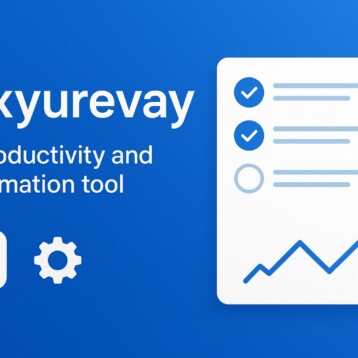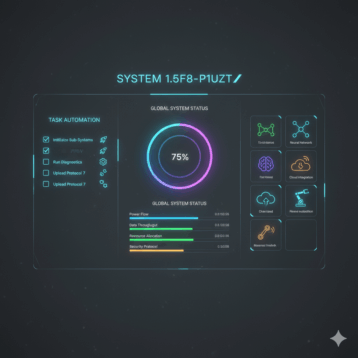
Digital transformation is an excellent opportunity for all organisations that want to grow their business effectively and in line with the latest trends, while better responding to the needs of demanding customers – not to mention the increasingly higher bar for achieving and maintaining a competitive advantage in the digital age. However, the implementation of a digital strategy requires not only increased outlays, but also a well thought-out and carefully planned action plan. As a result, more and more companies turn towards implementing the required changes and upgrades, such as increasingly popular digital process automation (DPA) tools – the more modern equivalent of business process automation (BPA) solutions.
Digital process automation and digitalisation of companies and organisations
Digital process automation (DPA) tools Digital Process Automation (DPA) is a natural expansion and evolution of traditional business process automation concept. It takes advantage of the available and dynamically developing innovative enterprise IT technologies, focusing mainly on the issues of process digitalisation and electronic document and task management workflow. DPA tools allow companies to automate task, data, information and digital versions document workflows between all the business process stakeholders. Modern DPA tools enable an effective and successful digital transformation of the organisation and streamlining its daily operations.
Digital process automation enables improving information flow within the organisation, optimising its operations and providing constant, fast and ongoing access to current data and documents. All this is carried out under full control and in accordance with current policies and guidelines in place in the company, which ensures proper functioning of the organisation, while facilitating and accelerating the execution of its current business strategies. Process stakeholders no longer have to think about what to do or who should receive a given document – they are guided throughout the process by the system, in accordance with centrally configured scenarios and business policies. This eliminates the risk of human error, while speeding up the work of the team, providing employees with a sense of security and confidence in their actions, thus increasing their level of job satisfaction.
Digital process automation and its benefits
The key elements of digital process automation are modern technologies and IT solutions, which make it possible to improve and optimise business processes, constantly improve customer service methods and effectively use all the opportunities offered by the dynamically growing business world and modern technologies. Innovative DPA solutions can give every company a number of measurable and clearly visible benefits, which cannot be overestimated.
While making the decision to implement such a solution, the company can count on optimising costs, significantly shorten individual task completion time, improve the quality, speed and efficiency of everyday work, as well as perform more efficiently in virtually every area of its operations. DPA solutions also enable organisations to achieve business objectives and focus on implementing business strategies by improving document management workflows and the quality of decisions, as well as ensuring that authorised employees have continuous, fast and convenient access to current and constantly updated data.
Within the context of digital process automation, there are new emerging trends, such as intelligent process automation (IPA). In addition to the standard concepts, employed by both BPA and DPA, IPA also draws on robotic process automation (RPA), elements of artificial intelligence (AI) and machine learning (ML). This enables companies to introduce a new quality and standards of operations – not only due to the more precise alignment of business processes to the individual needs of the organisation, but also moving to a much higher level when it comes to letting employees forget about repetitive and monotonous activities, prone to human error, thus speeding up the handling of tasks related to the processing of massive volumes of data and documents.
Digital process automation and the digital transformation of any company
Digital process automation can be successfully employed by any company that wants to efficiently follow the path of digital transformation, while making it smooth and sensible by pursuing it more as an evolution, rather than a revolution. DPA enables companies to carry out an effective and fully successful digital transformation of their business, allowing them to better adapt to the requirements and take advantage of the opportunities that the modern business world presents to them. The advantages offered by DPA can be appreciated by virtually all industries, sectors and departments – in particular administration, sales, customer service, marketing and manufacturing.
In terms of actual solutions, digital process automation is achieved with modern IT systems. Among them, one category – namely advanced low-code platforms developed to facilitate the management and comprehensive automation of business processes without the need to use code wherever it is not economically and technologically justified (such as in the case of more complex business scenarios or advanced integration with other systems, which will be particularly appreciated by large companies and corporations) – is particularly worthwhile. Optimizing and controlling processes using business applications created using such platforms enables improving and increasing process efficiency. It is also worth noting that the best low-code platforms available on the market additionally enable implementing changes and improvements in real-time, which allows for even faster and more effective implementation of new rules and policies, and thus for elevating operations to an even higher level, which determines the competitive edge in the digital age of Industry 4.0.










